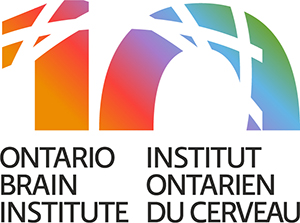New collaboration established to tackle depression relapse with mobile technology
TORONTO, July 19, 2016 /CNW/ - The Canadian Biomarker Integration Network in Depression (CAN-BIND), an Integrated Discovery Program of the Ontario Brain Institute (OBI), has entered into a scientific collaboration with Janssen Research & Development, LLC (Janssen), facilitated by Johnson & Johnson Innovation for a Canada-wide academic depression research project. The new project is focused on the discovery of biomarkers of relapse in major depressive disorder (MDD).
Depression is expected to be the leading global burden of disease by 2030 according to the World Health Organization. Given high rates of depression, and its tendency to recur, learning how to predict relapse and how to implement early preventive interventions will be crucial to decreasing disease burden and helping individuals remain well.
The team seeks to identify biomarkers, which are objectively measured biological or clinical characteristics, to predict relapse. The project involves wellness monitoring of mood symptoms and activity in individuals who are currently responding to an antidepressant treatment, using mobile health technology. This is a unique collaboration among top researchers in mood disorders, neuroscience, genomics, neuroimaging and psychiatry across major Canadian universities and health care institutions.
"We are pleased to support this important integrated solutions research in depression," said Husseini K. Manji, MD, FRCPC, Global Head, Neuroscience, Janssen. "This work allows use of the latest digital technology to help define the markers that are predictive of impending relapse in individuals suffering from recurrent depression. These relapses account for much of the morbidity and mortality in depression, an important research discipline for us at Janssen."
The study aims to recruit a total of 100 participants across Toronto, Hamilton, Kingston, Vancouver and Calgary who have already participated in a large multi-site Canadian study as part of the CAN-BIND program. Comprehensive clinical assessments and blood sample collection will be complemented with mobile health data collected using tools for real-time, remote self-report data capture to understand depression relapse, help individuals monitor their own symptoms, and transform care delivery.
"The collaboration model allows us to compare data from mobile health tools with existing clinical and biological data to understand how to help individuals with depression to get well and stay well," remarks Dr. Sidney Kennedy, the Principal Investigator of the CAN-BIND program. "The participants are a uniquely characterized group of individuals with depression. The continued support of the OBI and new support from Janssen will allow us to follow these individuals for an extended period of time."
Participants will have completed a previous 16-week study including functional magnetic resonance imaging (fMRI) of the brain, electroencephalography (EEG), proteomic and genomic sample collection, and an array of clinical measures covering dimensions of mood, anxiety, circadian rhythms, personality, life experiences and functional outcomes. Combining these data with relapse outcomes collected over a one-year monitoring period may help researchers understand why some people maintain wellness, while others experience a recurrence of depression symptoms after responding to treatment. The study aims to identify biomarkers that predict relapse, which can lead to improved prevention strategies.
"The CAN-BIND program is taking an innovative approach to understanding depression treatment response by integrating several data types," states Tom Mikkelsen, President & Scientific Director of the OBI, a partner in the CAN-BIND program. "This new collaboration with Janssen will intersect CAN-BIND's rigorous clinical research platform with mobile technology to further advance depression research, and decrease the individual, social and economic burden of depression".
About CAN-BIND
The Canadian Biomarker Integration Network in Depression is a national research program dedicated to shortening the path from depression diagnosis to effective treatment. Rooted in collaboration, the program brings together expertise in mood disorders, neuroscience, genomics, neuroimaging and psychiatry. The program aims to use integrative and innovative research approaches to identify objective measures that will quickly and reliably match the right depression treatment to the right patient.
Spanning five provinces, ten academic institutions and ten healthcare partner institutions in Canada, the CAN-BIND program is investigating predictors of response across a number of interventions including antidepressant medications, brain stimulation, cognitive behavioural therapy and cognitive remediation in adult and young adult populations. A program of this size would not be possible without the continuing support of the OBI.
About Ontario Brain Institute
The Ontario Brain Institute is a provincially‐funded, not‐for‐profit research centre seeking to maximize the impact of neuroscience and establish Ontario as a world leader in brain research, commercialization and care. Convergent partnerships are created between researchers, clinicians, industry, patients and their advocates to foster discovery and deliver innovative products and services that improve the lives of those living with brain disorders.
SOURCE Ontario Brain Institute

[email protected], 416-603-5800 ext. 6311

Share this article